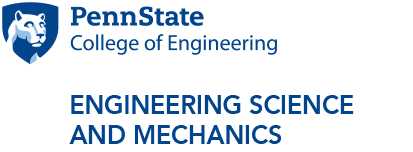Reinforcement learning-supported decisions with applications to engineering mechanics and infrastructure systems
Abstract:
In engineering problems and applications, models and analyses most often aim to support decision making. Think of a structural model that is employed to optimize design or a fracture mechanics model that assesses the safety and reliability of engineering components in time against fatigue and assists in optimal operation decisions. As engineers know well, engineering systems are also exposed to several uncertain conditions and demands.
Since engineering models are thus ultimately used for decisions under uncertainty, in this talk, our recent efforts are presented on an approach for a seamless integration of stochastic models and data with decision-making, able to directly and autonomously offer optimal actions. In the first part of the talk, the decision-theoretic background will be introduced, with emphasis on stochastic control and reinforcement learning approaches.
Several recent and ongoing theoretical, computational, and practical efforts along these lines will be then presented, including applications of structural systems exposed to fatigue deterioration, large-scale infrastructure systems under multiple optimization constraints, and adaptive coastal protection policies. The talk will then end with a discussion of what has been learned and achieved so far and remaining challenges.
Bio:
Dr. Kostas Papakonstantinou is an Associate Professor of Civil Engineering at Penn State. He obtained a five-year Diploma in Civil Engineering and a M.S. in Structural Engineering from the National Technical University of Athens, and M.S. and Ph.D. degrees at the University of California, Irvine.
Prior to joining Penn State, he was an Associate Research Scientist at Columbia University. Dr. Papakonstantinou’s work focuses on probabilistic analysis and stochastic mechanics, decision-making under uncertainty, machine learning, and their integration with computational structural mechanics and engineering applications.
His research has been funded by various programs and his work has received several awards, including the National Science Foundation CAREER award, a fellowship award by the Institute of International Education and the Fulbright Foundation, an editor’s choice paper award from the Journal of Engineering Mechanics, a visiting professor position by the Technical University of Munich, and several student awards for joint work and co-authored papers
Event Contact: Lana Fulton



